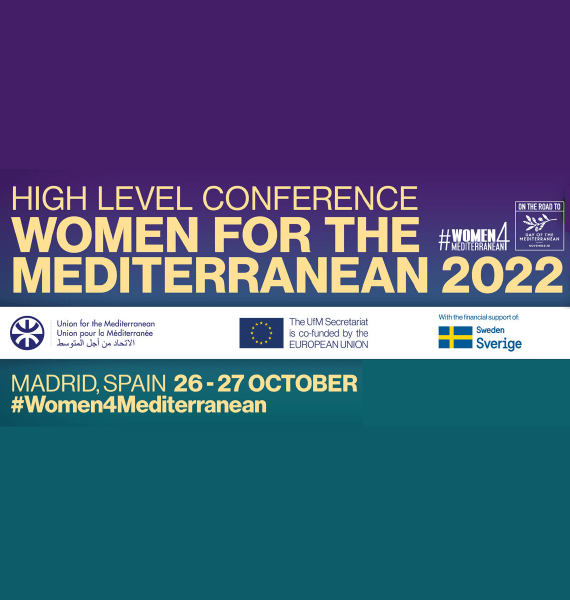2022 High-Level Conference on Women for the Mediterranean
Home | Events | Policymakers | 2022 High-Level Conference on Women for the Mediterranean

The 2022 High-Level Conference on Women for the Mediterranean organised by the Union for the Mediterranean will take place in the afternoon of the 26th October and throughout the 27th, in a physical format in Madrid. During the High-Level Conference, Ministers from the Union for the Mediterranean(UfM) Members States and the UfM-Co-presidencies (EU and Jordan) will be invited as well as representatives of national, regional and international stakeholders from public and private sectors including financial institutions and international donors. The recommendations gathered from the Civil Society organizations will certainly be taken on board during the discussions. LifeWatch ERIC International Gender Officer, Africa Zanella, will participate as a moderator and a panellist on 27 October from 12:15–14:00 CEST.
The Conference will be preceded, on the 26th of October 2022 by the 5th (UfM) Ministerial Conference on Strengthening the Role of Women in Society, which will gather Ministers of the 42 Member States of the UfM responsible for women affairs and gender equality.
The Conference will provide an opportunity for a further exchange of experiences, good practices and lessons learned on women empowerment and women’s rights in a regional-crisis (health, water, food and energy security) context. These discussions will also contribute to shape the Road Map for the Ministerial implementation and the regional agenda for the years to come, particularly towards an effective and inclusive gender equality policy, based on a gender transformative approach and the mobilisation of public and private actors in the region. The high-level speaker’s contribution to the discussions, taking place across the two days would be important in stepping up cooperation, focusing on implementation, concrete delivery, and monitoring of impact,while enhancing the visibility of past, on-going and future initiatives.
More information on the Union for Mediterranean website.
Sign up to watch the conference using the online form.